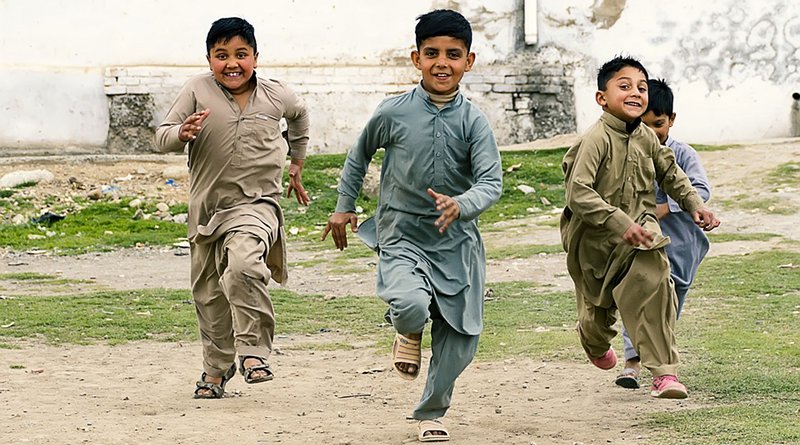Divisive Drumbeat: Examining Impact Of Sub-Nationalist Propaganda On National Unity In Pakistan – OpEd
Pakistan, a nation brimming with diverse cultures, languages, and identities, has long grappled with the challenge of fostering national unity amidst regional diversity. One significant obstacle on this path is the proliferation of sub-nationalist propaganda, which often amplifies ethnic, linguistic, and regional divisions. The ramifications of such propaganda reverberate through the social, political, and economic fabric of the country, posing a formidable threat to its stability and cohesion. In this opinion piece, we delve into the multifaceted impact of sub-nationalist propaganda on Pakistan’s national unity and explore potential pathways to mitigate its divisive influence.
Sub-nationalist propaganda encompasses various forms of communication aimed at promoting the interests and ideologies of specific regions or ethnic groups within a nation. In Pakistan, this phenomenon manifests in the dissemination of narratives that prioritize regional identities over the national identity, often fueling sentiments of exclusion and alienation among marginalized communities. Whether propagated through media outlets, political rhetoric, or social discourse, such messaging fosters a sense of us versus them and perpetuates the notion that certain groups are inherently superior or entitled to privilege.
The impact of sub-nationalist propaganda on national unity in Pakistan is profound and far-reaching. Firstly, it exacerbates inter-ethnic tensions by reinforcing stereotypes and prejudices, thereby eroding trust and cooperation between different communities. This fosters a climate of suspicion and hostility, hindering efforts towards social cohesion and integration. Moreover, sub-nationalist propaganda undermines the legitimacy of the central government and weakens its authority, as allegiance and loyalty become increasingly fragmented along regional lines. This not only impedes effective governance but also jeopardizes the country’s territorial integrity.
Furthermore, the proliferation of sub-nationalist narratives hampers economic development and exacerbates disparities between regions. By prioritizing the interests of certain groups over the collective welfare of the nation, such propaganda stifles investment, hinders infrastructure development, and perpetuates economic marginalization in neglected regions. This not only perpetuates cycles of poverty and underdevelopment but also fuels grievances that can be exploited by extremist elements, posing a grave threat to national security.
Addressing the challenge of sub-nationalist propaganda requires a comprehensive approach that addresses its root causes while safeguarding democratic principles and fundamental rights. Firstly, there is a need for proactive measures to promote inclusivity and diversity within the national narrative. This entails recognizing and celebrating the rich tapestry of cultures, languages, and traditions that constitute Pakistan’s identity while emphasizing the common bonds that unite its people.
Moreover, efforts to counter sub-nationalist propaganda must prioritize education as a tool for fostering tolerance, empathy, and mutual respect among citizens. By integrating curricula that promote pluralism and intercultural understanding, Pakistan can cultivate a generation of young people equipped to reject divisive ideologies and embrace a shared vision of national unity. Additionally, media literacy programs can empower individuals to critically analyze and discern between credible information and propaganda, thereby mitigating the influence of divisive narratives.
Furthermore, enhancing political inclusivity and representation is crucial for addressing the grievances that fuel sub-nationalist sentiments. By ensuring equitable participation and representation of all communities in the political process, Pakistan can promote a sense of belonging and ownership among marginalized groups, thereby strengthening the bonds of citizenship and allegiance to the state.
The impact of sub-nationalist propaganda on national unity in Pakistan is a complex and multifaceted challenge that requires concerted efforts from all stakeholders. By fostering inclusivity, promoting education, and enhancing political representation, Pakistan can confront divisive narratives and forge a path towards a more cohesive and resilient society. In doing so, it can harness the rich diversity of its people as a source of strength and unity, ensuring a brighter and more prosperous future for generations to come.
In light of these consequences, it is imperative for those who support sub-nationalist propaganda to reassess their actions and recognize the importance of fostering national unity and cohesion. Instead of perpetuating divisive narratives, they should strive to promote inclusivity, dialogue, and mutual respect among all segments of society. By embracing a shared vision of citizenship and belonging, we can work towards building a stronger, more resilient nation where diversity is celebrated as a source of strength, rather than a cause for division.

